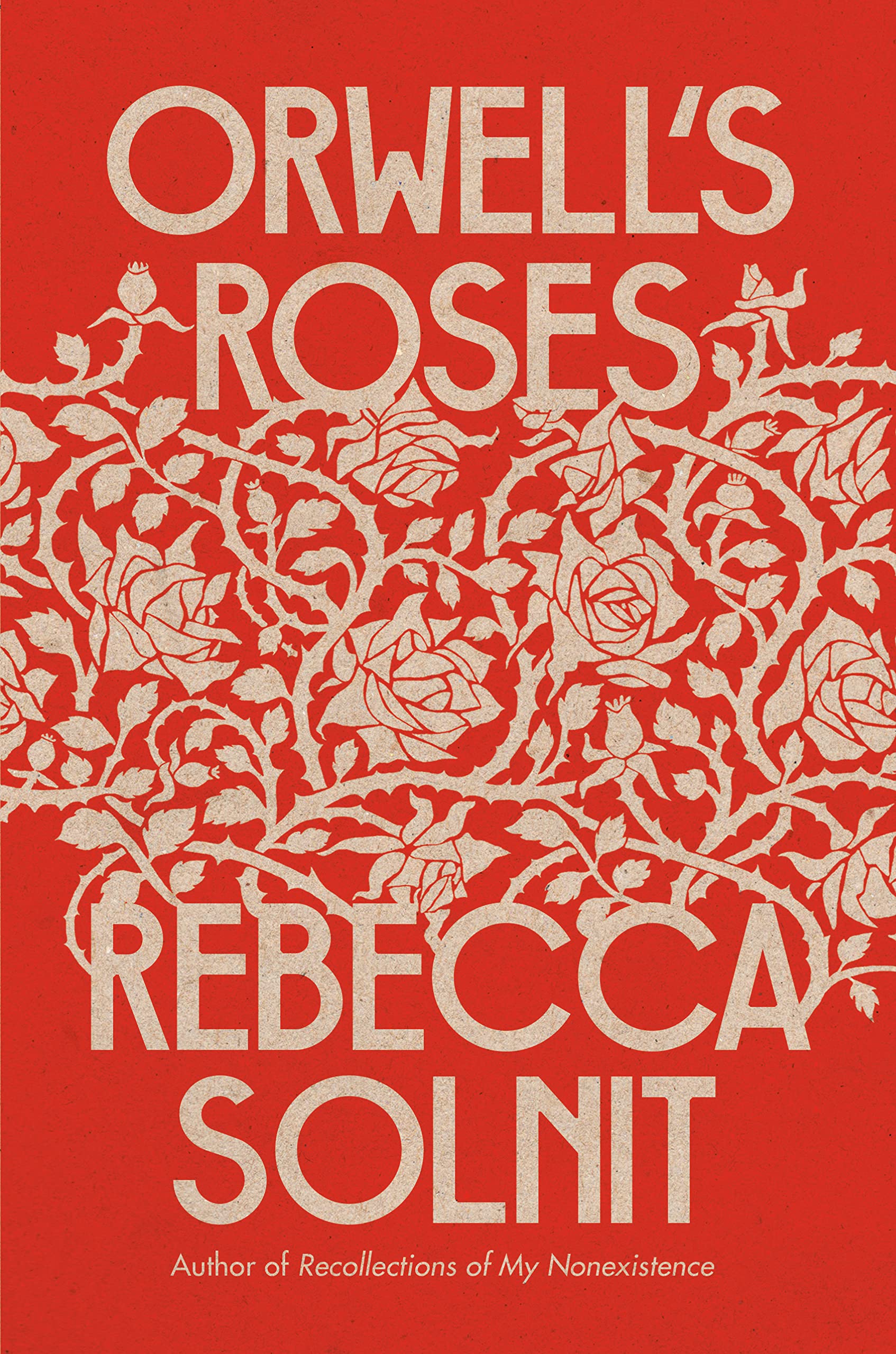Orwell’s Roses by Rebecca Solnit (Viking)
Orwell’s Roses is not, Rebecca Solnit tells us, a biography. It is, she writes, “a series of forays from one starting point, that gesture whereby one writer planted several roses.”
The gesture occurred in 1936, when George Orwell moved into a tiny cottage in the rural village of Wallington. It was a brief sojourn between his early work as a journalist and his departure to fight in the Spanish Civil war, several years before he wrote Animal Farm and his masterwork, Nineteen Eighty-Four.
Visiting that cottage decades later, Solnit discovered that Orwell had planted rosebushes, bought for a few pence at Woolworth’s, and enthused over them in his diary and letters. Roses still bloom at the house, perhaps the very ones he planted. For her, those roses nodded in the direction of a new way to look at Orwell.
There already were, she writes, a shelf’s worth of biographies of the man, all of which added up to “a stern and gloomy portrait in shades of gray.”
Solnit finds in the roses an ever-expanding way to look at Orwell and his world. In one chapter, she writes about the slave-owning and colonialism that shadow his family history and infuse his books. Later she circles to a startling description of her visit to a “rose factory” in Colombia, a contemporary example of colonialism.
Each chapter takes a different shape, follows a different path. One recounts the appalling effects on the human body of coal mining and coal burning; others offer glimpses of Orwell’s personal and political life; still others delve into the rose’s significance as a symbol of love, beauty, joy and the fleeting nature of life.
All that and more leads her to a new perspective not only on Orwell but on Nineteen Eighty-Four. Winston Smith haunts us not just because of the grim rigors of his life under a totalitarian regime but, Solnit writes, because he keeps seeking the joy of the natural world, even at the risk of his life.
Like a rose’s petals, each of these essays is unique, but they gather around their subject to form a shapely and brilliant bloom of a book.



